The impotence of exfoliation can not be overemphasized as doctors, celebrities, and other public figures recommend it as an excellent way to beautify your skin and keep it healthy at the same time.
While this message may be encouraging to those who seek to look their ultimate, a pressing question emerges, "which exfoliant should I use?". Unfortunately, this thought often pops up once the individual enters the store or visits an online beauty shop.
Fortunately, this article will answer this question and reveal which exfoliator is best alongside more relevant information.
What are Exfoliators
Fundamentally, exfoliators are the products used to rid the skin of dead cells during exfoliation. These roughly textured cosmetic products are excellent at reviving the skin's beauty as the dead tissue makes the surface appear darker than usual.
Exfoliating with these exfoliants doesn't only cleanse the skin but refreshes its cells and encourages blood flow to the surface. You also get smooth and healthy skin in the process, making the entire ordeal worthwhile.
It's worth noting that exfoliation, which removes dead skin cells from the body, occurs naturally with zero effort in children and babies. Unfortunately, this essential process becomes slower in adults as time progresses, causing dead skin cells to linger on the skin and prevent it from looking soft, smooth, and healthy.
Types of Exfoliation and their Exfoliators
Talking about exfoliants without emphasizing the types is almost impossible as this is equally crucial as the fact itself. Exfoliants come in different types, which are physical and chemical exfoliants.
Physical Exfoliation
Physical exfoliation involves using physical exfoliants that contain mildly sharp or coarse material to peel off the dead cells off the skin. Products in this category include rough sponges, loofahs, brushes, body scrubs, and many more.
Most of these items are entirely reusable and appropriate for dense skin surfaces like the hands and feet. But strong and milder physical exfoliants work better on the face as it contains softer and more delicate skin.
Today's most common type of physical exfoliant is the face and body scrub that contains natural abrasives like sugar to remove the dead cells with zero discomforts. Using them requires no training as all the individual needs to do is rub them on the surface and remove the dirt, grime, and dead skin.
Chemical Exfoliation
On the other hand, we have chemical exfoliation, which is merely applying specially mixed compounds on the skin to remove the dead surface above. This type of exfoliant works by dissolving into the waste tissue and weakening the protein bond between them and the new skin surface underneath, making it easy to wash.
Regular usage of this type of exfoliant provides you with a uniquely smooth and even tone that feels perfect to the touch. Additionally, all pores are Unclogged, and the subtle signs of aging are drastically reduced.
There are three main types of acids in chemical exfoliants, each with their penetrating power, and they include Alpha hydroxy acids (AHAs), beta hydroxy acids (BHAs), and Polyhydroxy acids (PHAs). AHAs and PHAs are mild chemicals that strictly work on the surface due to their low penetrating power, BHAs on the other hand can go through the dead layer and into the pores, dissolving the dead cells preventing acne.
Choosing the Correct Exfoliator for your Skin Type
Now that you understand the fundamentals of exfoliation and its types, you'll need to pick one that's compatible with you. However, this decision is more tricky than buying a new pair of matching shoes as the exfoliant must be compatible with your skin. Else, it either doesn't work or results in irritation.
Here's how to choose exfoliants according to your skin type:
Normal Skin
Normal skin is the best amongst the dive skin types as it has a reasonable balance between the skin's dryness and oil production. For this reason, this skin type possesses little to no blemishes and isn't sensitive to products.
While this type is the optimal skin, exfoliation is still necessary to remove the dead skin cells and increase its shine, brightness, and health, enabling it to absorb nutrients better and look visually appealing.
Exfoliating this skin type isn't tricky as a face scrub or mild chemical exfoliants with alpha-hydroxy acids (AHAs) should be sufficient in giving it the baby-like freshness.
Dry Skin
Dry skin isn't always comfortable as the absence of moisture makes it flaky, itchy, and sensitive to touch and some beauty products. Fortunately, exfoliating with the proper tools can promote healing and improve the skin's condition, but over-exfoliating can worsen the condition, leading to more unsatisfactory results.
Opting for harsh physical exfoliants like scrubs, sponges, and brushes isn't the best option as the dry surface is incomparable with these products. On the other hand, mild chemical exfoliants containing alpha-hydroxy acids (AHAs) are ideal for the job as they work on the skin's upper surface, removing the dead, dry cells.
Sensitive Skin
Sensitive skin is almost in the same category as dry skin, but the primary difference is its reaction to beauty products. People with this unique skin type constantly experience irritation, pimples, and even acne once exposed to new beauty products.
These delicate skins are compatible with physical exfoliation as the process is too extreme for the tissue. The best option for this skin type is a chemical exfoliant that contains alpha-hydroxy acids (AHAs) as they are mild and effective.
Oily Skin Types
People with oily skin are constantly plagued with pimples and acne as their pores over secrete oil, leading the dead skin to travel into those secretion glands to block them. This blocked hole tries to release sebum, but blockade prevents it from performing this task, leading to inflammation and irritation.
The best option for this skin type is physical exfoliation with brushes, sponges, or scrubs to eliminate the grime and unclog the pores. Alternatively, you can use chemical exfoliants that contain Beta hydroxy acids (BHAs) as this oil-loving compound will consume the sebum and dissolve the dead cells inside the pores.
Conclusion
Exfoliants play an essential role in many skincare, spa, and beauty treatments. Those who regularly engage in this skin-pampering activity are bound to possess visually appealing skin that's void of acne, looks youthful, and feels perfect to the touch.
Hopefully, this guide helped you understand the range of exfoliants and choose the type that's compatible with your skin.
Those who regularly engage in these types of pampering activities may already have nicely exfoliated skin. However, individuals with a busier lifestyle can still enjoy the benefits of exfoliants with drugstore products or homemade exfoliants. Adding any of the above types of exfoliation to a regular skin care regimen will help create a clear, glowing, and youthful complexion.
Cleanlogic Sustainable Large Body Exfoliator – Cleanlogic Body Care



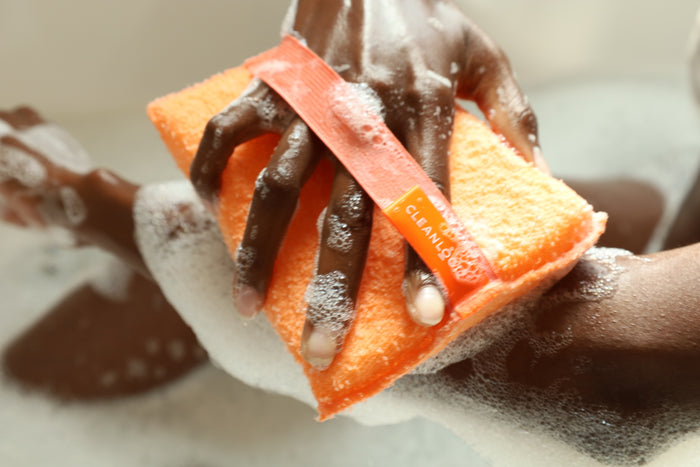

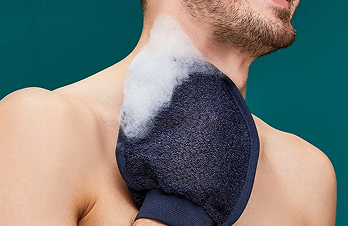


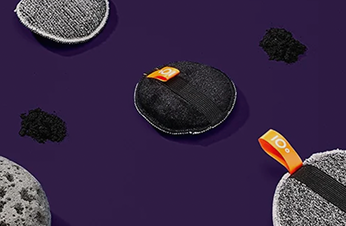
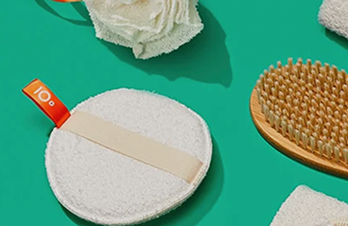
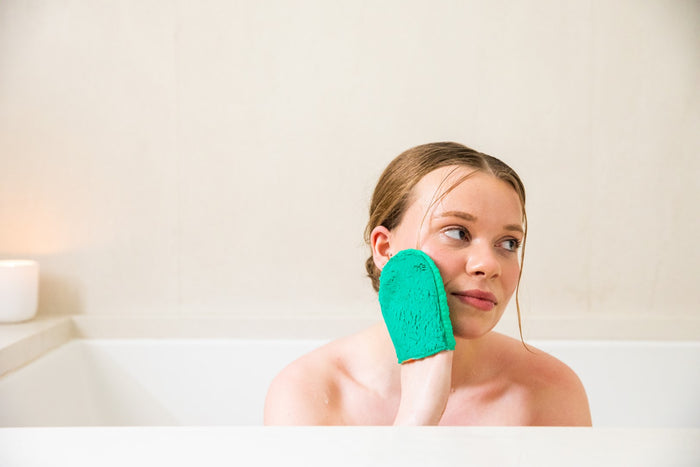
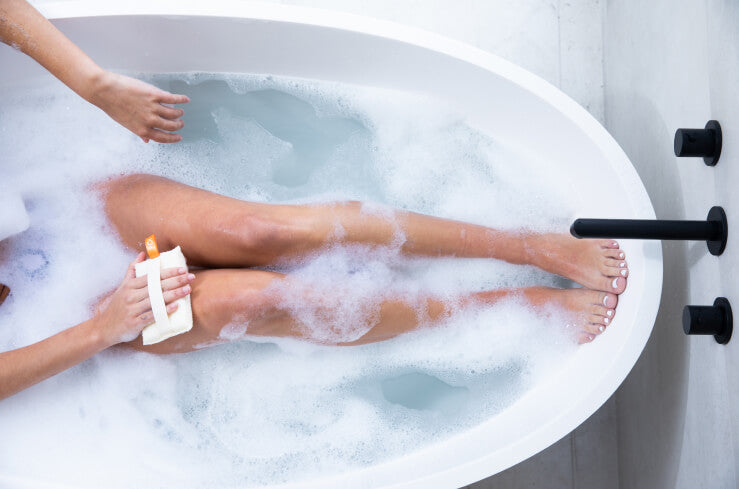
0 comments